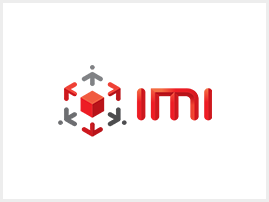Benefits and Importance of Precision Machining

May 31,2019,Philippines—Every day, the rapid innovations in technology along with the ever-expanding global market are presenting new challenges to the global manufacturing industry. This is why it is important for manufacturers from all manufacturing industries—from automotive to aerospace—to engage in safe and accurate manufacturing practices.
Used to create tools and components for a wide range of manufacturing industries, precision machining is the act of removing material from a sheet or block of material, and then cutting it into exact shapes and sizes. In the early days, this is achieved with the use of relatively rudimentary tools such as blades and hammers, but technology has enabled the industry to use computer numerical controlled (CNC) machines that work with tools like mills and grinders for a more precise process today.
One of the most important techniques used in the machining industry, there are a number of reasons why precision machining is a highly sought process in global manufacturing. Here are the top seven benefits and importance of precision machining.
High level of accuracy
The slightest millimeter can make all the difference in global manufacturing, especially for the medical electronics industry. For this very reason, precision machining is held at high importance within the industry. All manufacturers need are extremely accurate drawings and specifications, and the CNC machine will be ready to do extremely accurate cuttings.
Consistent quality
Creating products of the same quality can be challenging especially with products that have complicated component designs. However, precision machining using CNC machines leads only to consistent output time after time.
Having products of consistent quality is beneficial not only in enhancing the brand’s image both in design and safety, but also in reducing the number of bad product outputs.
Low error rate
As much as human workers are important and needed for many manufacturing processes, they are bound to make mistakes especially with how rapid the changes in technology and global manufacturing landscape happen. Precision machining or working with CNC machines to cut materials can produce accurate and consistent results which minimizes or eradicates error in manufacturing.
Less material waste
Although its core concept is subtractive manufacturing which is more likely to produce material waste than additive manufacturing, precision machining is capable of lowering error rate and creating products with consistent quality which helps manufacturers avoid having to throw away any bad product outputs, or repeat processes and use more material.
Increased efficiency
Following the benefits listed above, it is clear that precision machining allows manufacturers to work at a much faster pace and produce more products than before, therefore increasing efficiency. It also allows manufacturers to direct their labor force to other aspects of production that require more human workers than machines.
Cost-effective
With lower risk of creating mistakes and producing subpar outputs, precision machining can dramatically reduce the cost of manufacturing. It allows manufacturers to have a definite financial plan for production and eliminates the need to allocate budget for contingency since it ensures accurate results. Additionally, it can also cut down labor expenses.
Safer production
Accidents are nothing new in manufacturing. In fact, according to US Labor of Statistics in their 2017 Census of Fatal Occupational Injuries Chart, there was a total of 303 fatal work injuries in the manufacturing industry that year. Accidents with machinery is one of the most common and most devastating accidents in the industry, but fortunately, the automated process of precision machining removes or lessens the chances of it happening.
Ever since the beginning of the industrial revolution, precision machining has come a long way, and it will continue to become more precise as new revolutions happen. However, its benefits and importance to the global manufacturing industry are some of the things that will remain unchanged no matter how advanced technology get in the future.
Other Blog



